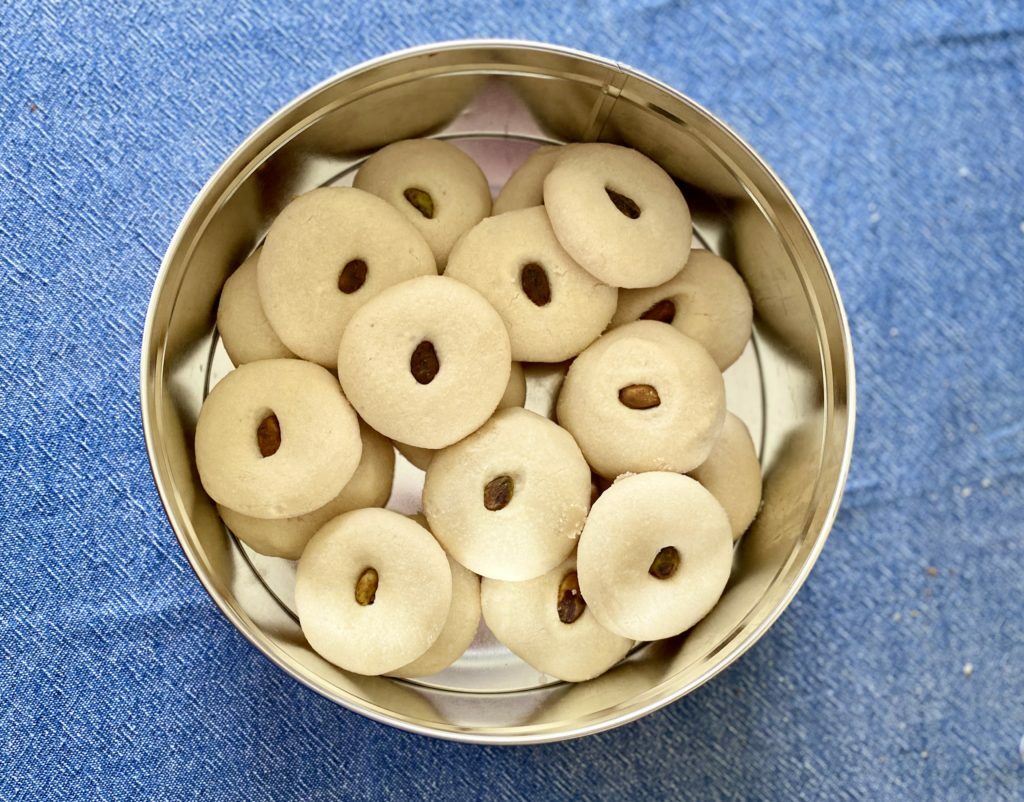Xenia is from Carlisle, PA and an alumna of the Arabic 2020 Virtual Summer Intensive program.
I was recently in a meeting with the president of my college and fourteen other first-year students where we had the opportunity to introduce ourselves and talk about our passions. When it was my turn, I shared with my peers my passion for Arabic, the opportunities I have had to study a critical language, and why critical languages are vital. I told them that one of the reasons I am so committed to studying Arabic is because I believe it is one of the languages that will bring world peace. While this might seem like a big idea, I learned first-hand this summer from my experience with NSLI-Y that critical languages are the key to understanding marginalized cultures and people who need ambassadors.
I, like most of the other 2020 NSLI-Y summer scholarship recipients, never imagined that our NSLI-Y summer cohort would turn into the Virtual Summer Intensive (VSI) due to a pandemic. While this news was saddening to hear in April, I was excited to embrace a new format of learning and connect with people all over the world. From July 6 to August 9, 2020, I was busy creating projects, making cultural food, watching videos, and doing various writing and reading assignments for class. NSLI-Y VSI’s innovative approach to online learning kept me learning this summer and helped to re-energize my passion for Arabic.

While I enjoyed many things about my NSLI-Y VSI experience, my favorite thing was our school, The Qalam wa Lawh (قلم و لوح, Pen and Board) Center in Rabat, Morocco and the community I was able to form from it. My class was small and was comprised of me, one other student, and Ustaz (Teacher) Karim (أستاذ كريم). Our small class allowed both of us plenty of time to practice speaking and get to know each other. Our classes lasted for two hours every weekday and were conducted in complete Arabic. In five weeks studying together, I think Ustaz Karim said a maximum of five words in English. While I had experienced an immersion program for Arabic the summer before and learned a lot from my Arabic classes during the school year, it was originally shocking and extremely challenging to ask and answer questions and add substantial comments in full Arabic during class. Gradually, however, as the days went by, it began to get easier, and I could express the full ideas that I wanted to.
I also began to feel connected to my classmate and teacher. Even though we did not speak English together and we were looking at each other’s 2-D faces on Microsoft Teams, we formed a relationship. We discussed a range of topics from our families, holidays and traditions, schools, and hobbies to more complex issues such as immigration and stereotypes about the Arab world. Our summer program even fell during Eid al Adha (عيد الأضحى), the holiest holiday in Islam, and we were able to discuss the traditions and rituals that take place during the Muslim world on this holy day. I will never forget seeing and hearing a goat in the background of Ustaz Karim’s house. That is not something you encounter in your typical language class! I began to feel the borders of my Arabic expanding, as I could hold a conversation about real-life issues and understand more complex cultural information.

Our cohort of NSLI-Y VSI students at the Qalam wa Lawh Center also was fortunate enough to participate in cultural sessions such as, calligraphy, a Moroccan cooking class, during which we made mint tea and Baghrir (بغرير, a Moroccan crepe), several question and answer sessions with guests, and a virtual tour of Rabat. These sessions gave us the opportunity to explore Moroccan culture from our homes and meet many different students also participating in NSLI-Y.
Our final project for our program was to research an area of cultural interest. I chose to make an authentic Moroccan meal complete with chicken tagine (طاجين), couscous (كسكس), Arab bread (جبز عربي), olives (زيتون), and ghraybeh (غريبه) cookies for dessert. Not only was this meal delicious, but it allowed me to explore the origin of these dishes and the influence of Arab and Imazighen culture in Morocco.

One of the ultimate goals of NSLI-Y is to “develop a cadre of Americans with advanced linguistic skills and related cultural understanding who are able to use their linguistic and cultural skills to advance international dialogue and compete effectively in the global economy” (About NSLI-Y, “Goals of NSLI-Y”). This summer I was still able to achieve these goals set by the Department of State by growing my speaking in Arabic to ACTFL’s “Advanced Low” level and by beginning to understand the complexities of Moroccan culture and identity. NSLI-Y VSI was the best part of my summer, and I know that I will carry all the linguistic and cultural lessons with me as I continue to navigate my future studies involving Arabic and the Middle East. I hope that one day our cohort from NSLI-Y VSI will all be able to meet in person, cook Moroccan cuisine in the same kitchen, and celebrate how hard we have worked. This is just the beginning of the journey for all of us, and I know that we will use our language skills to better the world and eventually establish world peace.
مبروك يا أصدقائي! عملنا كثيراً ونجحنا في برنامجنا الصيف! إن شاء الله سنقابل قريباً في الحياة الحقيقية.
(Congratulations, friends! We worked very hard and succeeded in our summer program! God willing, we will meet soon in real life.)
